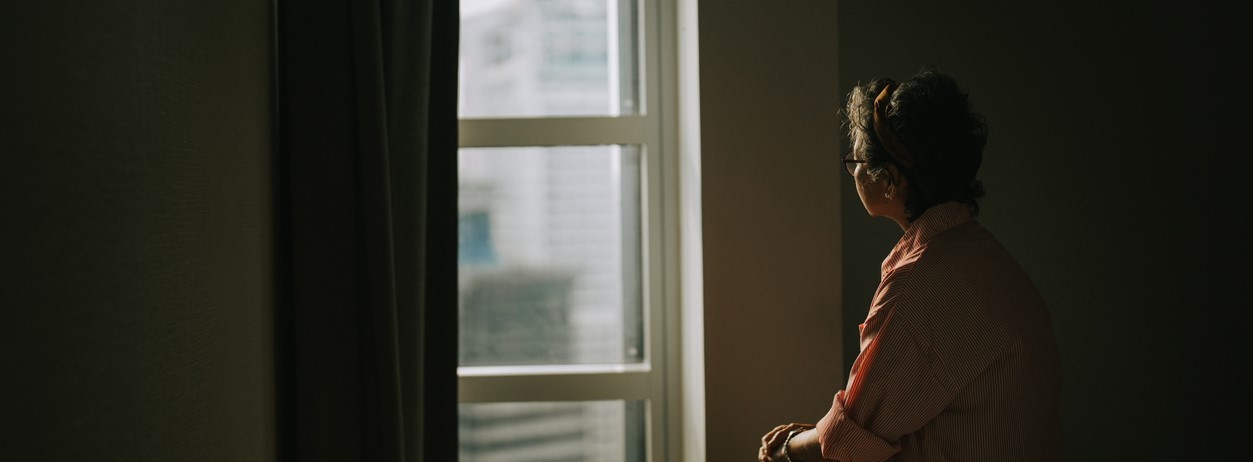Are you or a loved one struggling with an addiction to drugs or alcohol in the Kirkwall area? If so, it’s important that you realise that you are not alone and that there are many people ready to help you.
Alcohol and drug addiction is not something to be ashamed of, and you shouldn’t allow pride or shame prevent you from seeking the all-important help you need to overcome your addiction.
Get in touch with us today to learn more about how we can help you overcome your addiction and get your life back to a much better place. We are here to provide free, confidential advice whenever you need it.
What Causes a Drug or Alcohol Addiction?
There is no specific cause for drug and alcohol addictions, and it will be different for everyone. There are likely some underlying issues that may influence a person’s addiction. However, we can go over a few common causes below.
One of the most common causes of addiction is poor mental health. Drug and alcohol addictions may arise as a result of being used as a coping mechanism, or mental health problems could start due to the drugs and alcohol. It’s very common for excessive drug and alcohol use to result in poor mental health.
In an alcohol and drug rehab centre, part of the treatment programme will provide mental health support. This is a very important aspect to consider in anyone’s recovery journey.
Some other common reasons people might develop a drug or alcohol addiction is because they find it very difficult to cope with things such as grief, childhood traumas, and stress at home or work.
We have an excellent team of addiction professionals who have helped many people move past their addiction and move toward better things. We can help you leave the drugs and alcohol behind for good. Get in touch to find out more about our addiction treatments and how we can help you move forward with your life.
Detoxing and Withdrawals
When you enter your drug and alcohol rehab treatment programme, you will be required to complete an assessment of your health and some other things to determine the best course of treatment for you. The medical professionals in rehab may provide you with some safe, prescription drugs to help you get through the worst parts of your withdrawals.
You will benefit from around-the-clock care and support when you go through your alcohol and drug detox in a rehab setting. Once you have safely completed a drug and alcohol detox and your withdrawals are minimal, you can move on to further treatments and therapies with a clear mind. This will give you the best possible chances of maintaining your long-term sobriety.
Therapies in Rehab
You will experience various addiction treatment methods when you go through rehab treatment. This is because every addict is different, and every addict will need a different approach for a successful treatment. Inpatient rehab treatments have a successful track record of fulfilling long-lasting recovery and avoiding relapse.
Group therapies are used for addiction treatments as they are considered very effective in helping people with their recovery journey. Some examples of other therapies that you will likely experience within a rehab treatment plan include the following:
- Cognitive behavioural therapy (CBT
- Holistic therapies like yoga, art therapy, and music therapy
- Mindfulness
If you want to find out any more information about the treatments you might expect to come across in rehab, get in touch with us today, and we will be happy to answer any questions you may have.
Aftercare When You Leave Rehab
After completing your rehab treatment, you will return home to your everyday life. This can be pretty difficult for some as it means that you are going back to potentially what triggered or caused your addiction in the first place.
The first 12 months after you leave the rehab setting are the hardest. This is why you will receive 12 months of free aftercare when you return home after your treatments.
It is important that you remain dedicated to your ongoing recovery long after you leave the rehab setting. With an aftercare plan, you will have continued support to ensure that you can maintain your recovery and avoid any chances of relapsing.
You will likely continue to see your therapist every week to continue to learn how to keep up your recovery and to inform them of any struggles you are experiencing and work through them.
You will also be encouraged to take part in local 12-step meetings. This is where you can converse with other recovering addicts and build a support network to benefit your ongoing recovery.
The aftercare team will also provide you with some valuable contacts and some self-help groups in the local area and may put you in touch with a sponsor. With a tailored aftercare plan, you can be sure that you can return home without worries and continue your recovery on the other side.
The aftercare team is dedicated to supporting you during your transition between the rehab setting and your everyday home life.
Get The Help You Need For Your Addiction Now
If you or someone you know is struggling with an addiction, reach out to us on 01475 303998. We have a team of addiction specialists waiting for your call who would be happy to answer any questions you may have and give you the advice you need to get started with your recovery journey today.
Don’t delay your treatment; this could worsen the addiction. Reach out to us as soon as possible if you’re ready to make those all-important changes in your life.
Frequently Asked Questions
Where can I find the nearest rehab centre?
Our team can help you find the nearest rehab to you. We can also help you find the right rehab for your own individual circumstances. Sometimes it might pay to travel a little further afield to find the facilities and programme that matches your own unique requirements.
What happens during alcohol detoxification?
When detoxing, you will experience a range of negative withdrawal symptoms. In rehab, you will be constantly monitored and may be given medication to help ease the withdrawal symptoms.
What are the most common treatments for addiction?
Detoxification, rehabilitation, individual therapy, group therapy, relapse prevention and aftercare are among the most common treatments for addiction. As addictions often coexist with mental health disorders, dual diagnosis is also a common treatment.
However, it should be noted that for these treatments to be effective, they must be personalised to your needs.


